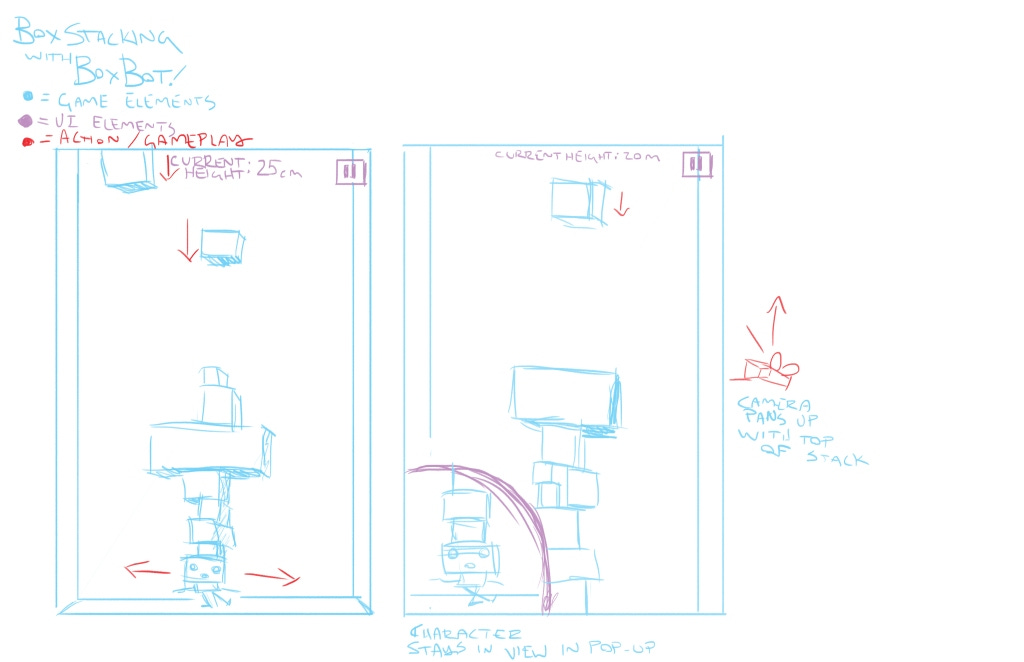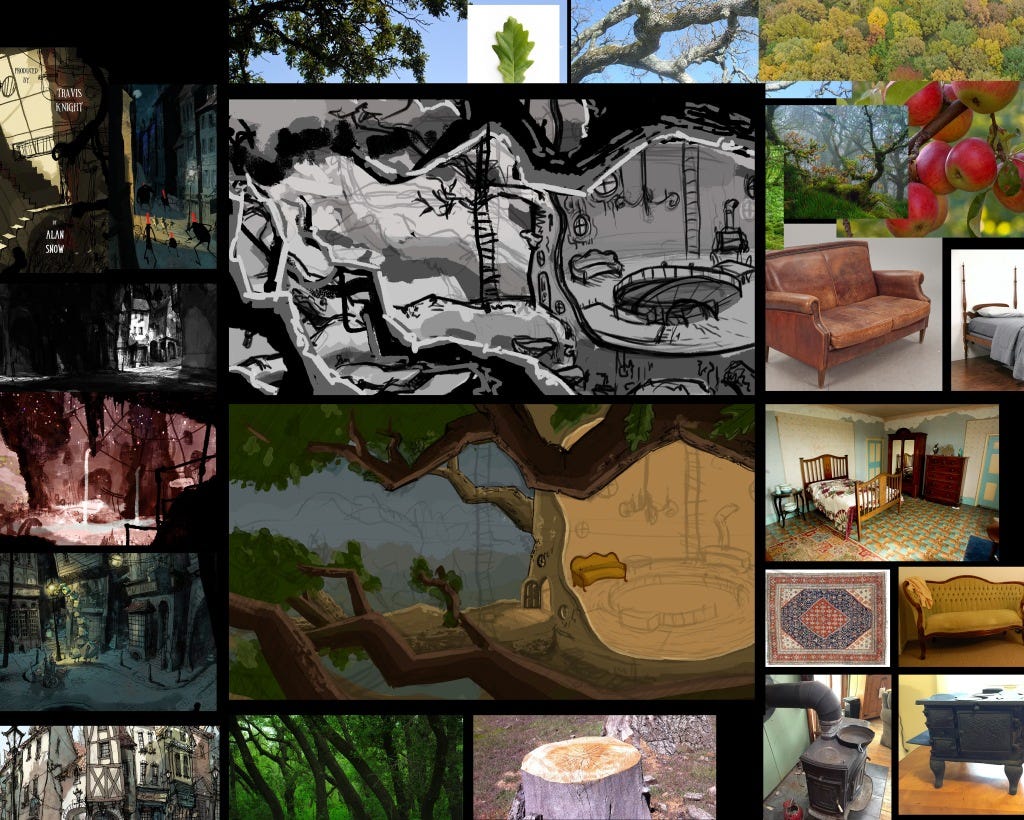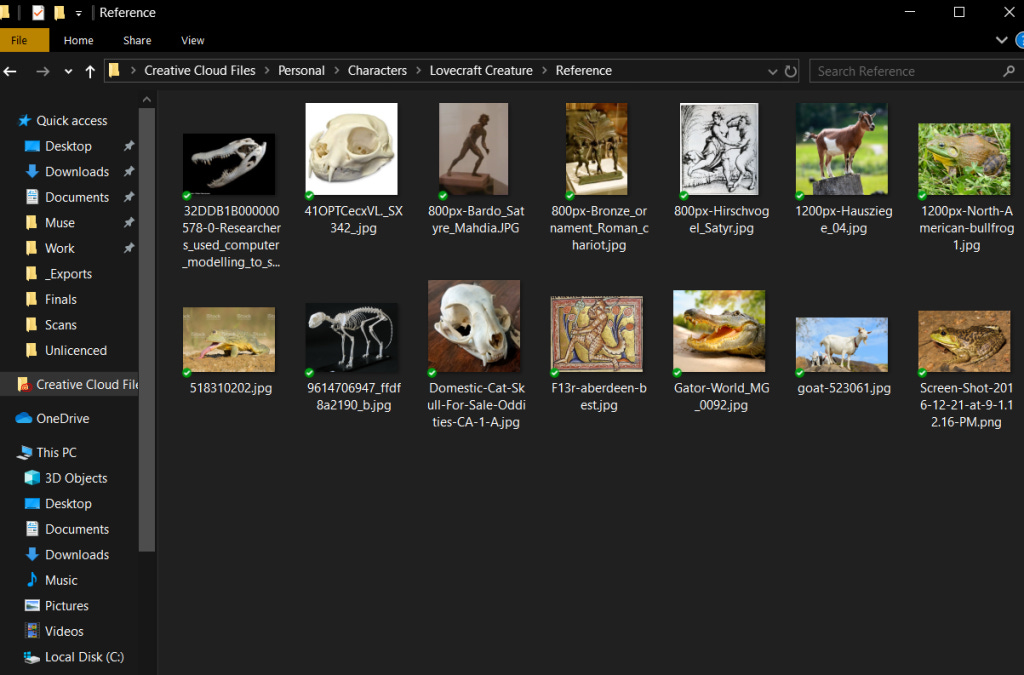The Blank Page
So I said I was going to make a game. Now what?
For the last year or so, with this idea in my head that I wanted to try to make a game of some kind – any kind – I’ve been tossing around vague ideas for what that game would be. Maybe I’m coming at it from the wrong angle, but my goal was never to make a specific game, and it still isn’t. My goal was to go through the process. To make a game, finish it and release it.
And so now I’m left with a pretty hefty challenge at the beginning here. How do I start? What do I make?

This isn’t a challenge unique to making games. Throughout your entire life as a creative person, you’re often confronted with the “fear of the blank page”. There is this idea that the most difficult thing about any creative project is just starting. That the absolutely endless amount of possibilities becomes paralyzing – like when my kitchen scale broke and I spent two hours watching YouTube videos and reading Amazon reviews to find a replacement – there’s simply too many options, and so you end up doing nothing. This fear of the blank page is a part of the issue, but I don’t think it’s really the heart of the problem.
I recently had the privilege of getting to teach introductory drawing classes part-time at Mohawk College in the graphic design program. It was an amazing experience for numerous reasons, but one thing I didn’t appreciate going into it was how much I would learn from it. Not because of some hokey thing like “the students taught me more than I could ever teach them”, but literally because I was having to teach them the fundamentals of a creative process, and so I was kind of auditing an introductory drawing class that I happened to be the instructor of. I couldn’t help but overhear a lot of the advice that I was giving, which was a very bizarre and hugely helpful experience. We tend to take a lot of the things we learn for granted, and unless we make a point of repeating them to ourselves every day, it’s pretty easy to forget about some of the lessons you’ve learned that you might find useful later.

The reason I’m bringing this up now is because one of the major things many of my students struggled with was coming up with ideas. Practicing drawing stick-figures wasn’t a big deal, but as soon as I asked them to design a character to map onto those stick-people, a bunch of them hit a brick wall. And here I am now having a similar issue. So what was my advice to them? How can I learn something I might already know to help myself get past this blank page?
The process of coming up with ideas is something I’ve always been fascinated by. Especially while I was in university, I thought that if I could figure out a reliable process for coming up with clever, intelligent, humorous, brilliant ideas, then I would finally have the key to all my creative potential. I would try to figure out the exact recipe for the perfect idea – six dashes of mind-mapping, a cup of photo reference, fifteen grams of powdered inspiration, nine heaping tablespoons of eureka moments brought on by long walks and hot showers. It was perhaps the most I’d ever forced myself to try to be clever and I think it showed. That’s because I was blind to the actual issue I was having every time I tried to come up with an idea.
It isn’t that complicated. At the beginning of any creative process – and I can feel that this remains true for this new process of game design – your biggest enemy is yourself. While you’re pushing yourself to try to come up with some real visionary, mind blowing material, there’s this other part of you that is sabotaging the entire effort. That part is self-judgement.
I’ve found that I have this extremely harsh, judgmental filter on my brain that I am almost always completely unaware of. During the process of trying to come up with an idea, I feel like I’m drawing a blank because in reality, I’m filtering out ideas as “bad” or “dumb” or “obvious” before they even leave that boundary just beyond my subconscious. I’ve barely even had an idea, and I dismiss it. No wonder it seems like I don’t have any ideas! I threw them all away before I knew if they had any merit!
I don’t think this problem is unique to myself, and when I taught my students I would try to help them realize that this might be going on by getting them to use that filter to their advantage! Don’t try to fight your judgmental filter, but instead trick it into letting some ideas get out of your brain. I would do this by getting them to, rather than try to brainstorm a bunch of good ideas, brainstorm as many bad ideas as they could. Legitimately try to come up with horrible ideas that will not work for your project, and you’ll find you have an unending spring inside you absolutely overflowing with ideas. And here’s the thing, the filter that’s deciding that these ideas are bad sucks and it routinely lumps legitimately great ideas in with the bad ones. I’ve found that that did a great job in breaking the dam and getting my students to actually start the process of ideating and coming up with something – anything – to draw. A lot of the time in that process, you look down at all the horrible ideas you thought up and realize some of them aren’t so dumb after all (though lots of them will also probably be dumb).

The whole point of that process isn’t to have a reliable way to come up with good ideas – I already realized after university that that pursuit was flawed from the start. Instead, the idea is to continually remind yourself to recognize that you don’t really fear the endless possibilities of the blank page. Instead, the issue is that you’re prejudging your ideas before they even get a chance to make it on the page. At least give them a chance to get out of your brain before you decide they're awful!
So what game am I going to make? Honestly, this entire week was a process of getting to this point of reminding myself not to judge my early ideas. A lot of my time was spent avoiding this work. I did a lot of dishes, baked bread, researched the ideal kitchen scale, convinced myself I needed better office organization and spent $70 ordering cork boards, modular peg-board systems and boxes from IKEA – basically anything I could come up with that could get in the way of putting in the work of coming up with an idea.
And so now that I've reminded myself of how to come up with ideas, I’m going to go try to think of some really bad game ideas and see what makes it past that filter.




